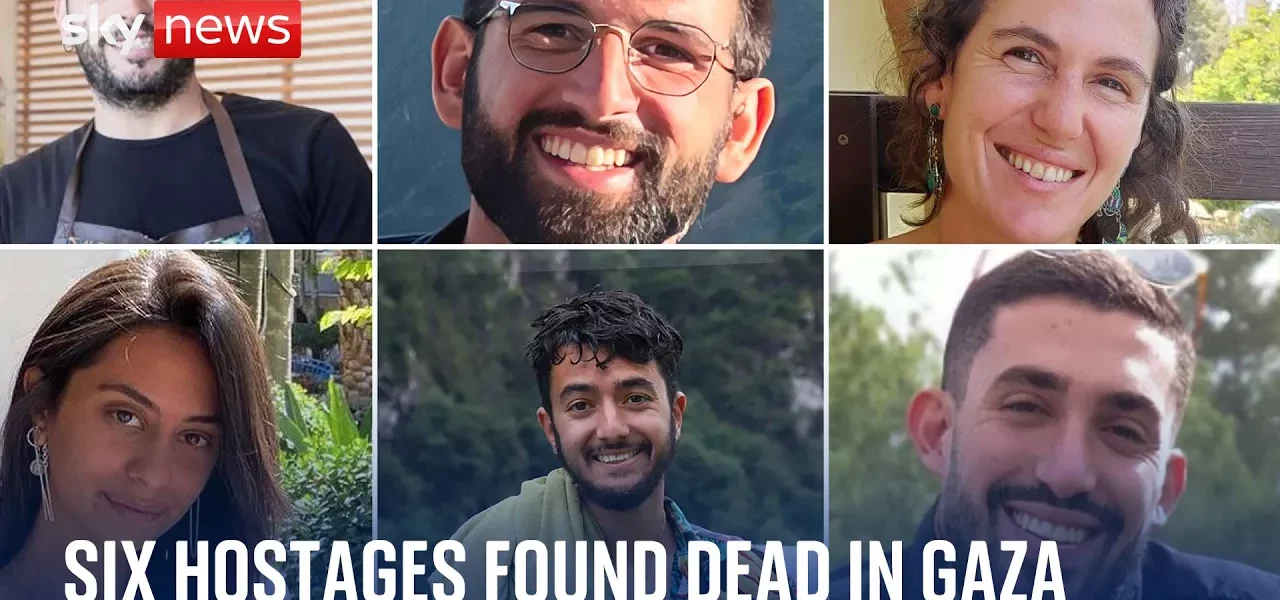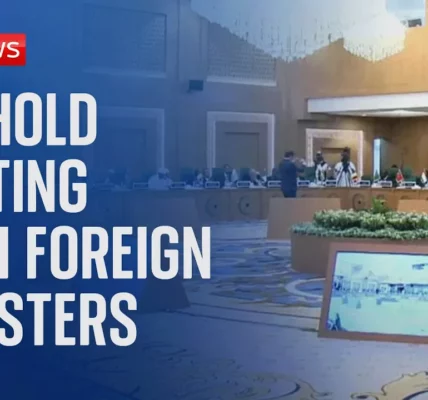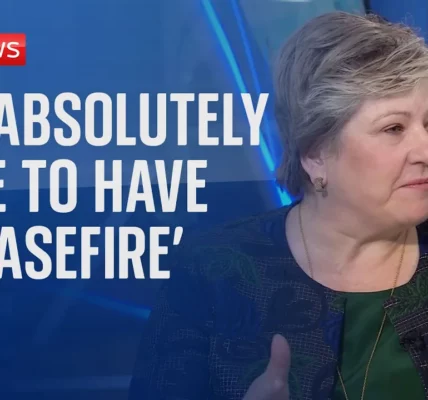Tragic Developments in the Israeli-Palestinian Conflict: A Deep Dive

The recent events in Gaza and Israel have stirred widespread emotions and raised critical questions about the ongoing conflict. This article delves into the shocking news regarding hostages found in Gaza and the humanitarian response to the crisis.
Introduction
The news cycle has been turbulent as the Israeli Defense Forces (IDF) confirmed the discovery of six bodies in a tunnel in Rafah, southern Gaza. This revelation has sent shockwaves across Israel, where these individuals were long believed to be alive and potentially part of future hostage negotiations. The implications of this event are profound, as they highlight the complexities and tragedies inherent in the ongoing Israeli-Palestinian conflict. Understanding the dynamics at play is essential for comprehending the broader context of these developments.
Confirmation of Hostage Deaths
On the early morning of the incident, the IDF released a statement acknowledging the discovery of the bodies and confirming that forensic examinations had been conducted. The IDF reported that these individuals were believed to have been killed by Hamas shortly before a potential rescue attempt. This confirmation is particularly devastating as it contradicts the hope held by many families and the Israeli public that these hostages would return alive.
Public Reaction in Israel
The revelation has triggered immense grief and anger across Israel. Citizens who had held onto the hope of a successful hostage release are now grappling with the harsh reality of loss. Statements from government officials reflect this sentiment:
- President Biden expressed condolences, recognizing the victims as heroes.
- The Israeli President extended heartfelt apologies to the families for the failure to secure the hostages’ safe return.
- Calls for accountability and a strategic reassessment of military priorities are growing louder.
Political Ramifications
The political landscape in Israel is shifting as public opinion begins to turn against Prime Minister Benjamin Netanyahu. Observers have noted a growing sentiment that Netanyahu’s focus on military operations may have overshadowed possible diplomatic solutions for a hostage deal.
Internal Disagreements within the Israeli Government
Recent reports indicate a rift within the Israeli security cabinet. Defense Minister Yoav Galant has publicly advocated for a reevaluation of military strategies, suggesting a temporary withdrawal from specific regions of Gaza to facilitate negotiations. This approach has been met with resistance from Netanyahu, leading to heightened tensions among government officials.
Protests and Public Sentiment
As the news of the hostages’ deaths spreads, preparations for protests have begun across major cities in Israel. The public’s frustration is directed not only at Hamas but also at the government’s handling of the situation. Key points of contention include:
- Failure to secure a hostage deal.
- Continued military actions that overshadow diplomatic efforts.
- The perceived prioritization of military objectives over humanitarian considerations.
Humanitarian Efforts Amid Conflict
In a rare moment of agreement between Israel and Hamas, a humanitarian initiative is set to occur in Gaza. The World Health Organization has commenced a mass vaccination program targeting approximately 640,000 Palestinian children under the age of 10.
Details of the Vaccination Rollout
The vaccination efforts will take place within a three-day ceasefire in designated areas of central Gaza. This initiative marks an essential step in addressing the health crisis exacerbated by the ongoing conflict. Key details include:
- The vaccination program aims to immunize children against various preventable diseases.
- Successful implementation in central Gaza could lead to expanded efforts in southern and northern regions.
- The initiative reflects a critical intersection of health and security, highlighting the need for humanitarian pauses in fighting.
Community Response and Conditions on the Ground
Initial reports indicate that the vaccination rollout has begun positively, with communities expressing relief at the temporary lull in hostilities. Health workers have noted long queues of parents bringing their children for vaccinations, demonstrating a community eager for safety and health amidst the chaos.
Conclusion
The recent confirmation of the deaths of hostages in Gaza has underscored the tragic realities of the Israeli-Palestinian conflict. As public outrage mounts and political tensions rise, the situation remains fluid and complex. The ongoing humanitarian efforts provide a glimmer of hope amid despair, highlighting the importance of finding common ground for peace and safety. We urge readers to stay informed and engaged with the developments in this critical region, as the path forward remains uncertain yet crucial.
For further insights into the ongoing conflict and its implications, consider exploring our related articles on the Israeli-Palestinian peace process and humanitarian efforts in conflict zones.
“`




